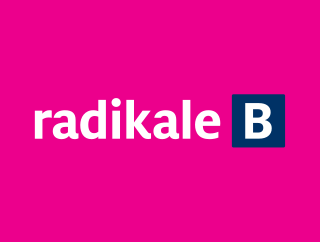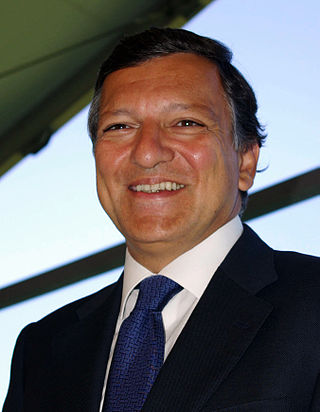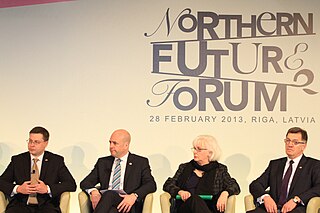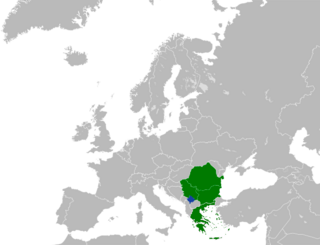The politics of Greenland,an autonomous country within the Kingdom of Denmark,function in a framework of a parliamentary representative democratic dependency,whereby the prime minister is the head of government,and of a multi-party system. Executive power is exercised by the government. Legislative power is vested in both the government and parliament Inatsisartut. The judiciary is independent of the executive and the legislature. Greenland has full autonomy on most matters,except on policies and decisions affecting the region including negotiations with the devolved legislatures and the Folketing.

The Common Foreign and Security Policy (CFSP) is the organised,agreed foreign policy of the European Union (EU) for mainly security and defence diplomacy and actions. CFSP deals only with a specific part of the EU's external relations,which domains include mainly Trade and Commercial Policy and other areas such as funding to third countries,etc. Decisions require unanimity among member states in the Council of the European Union,but once agreed,certain aspects can be further decided by qualified majority voting. Foreign policy is chaired and represented by the EU's High Representative,currently Josep Borrell.

Günter Verheugen is a German politician who served as European Commissioner for Enlargement from 1999 to 2004,and then as European Commissioner for Enterprise and Industry from 2004 to 2010. He was also one of five vice presidents of the 27-member Barroso Commission. After his retirement,he is now honorary Professor at the European University Viadrina in Frankfurt (Oder).

A European commissioner is a member of the 27-member European Commission. Each member within the Commission holds a specific portfolio. The commission is led by the president of the European Commission. In simple terms they are the equivalent of government ministers.

Poul Holmskov Schlüter was a Danish politician who served as Prime Minister of Denmark from 1982 to 1993. He was the first member of the Conservative People's Party to become Prime Minister,as well as the first conservative to hold the office since 1901. Schlüter was a member of the Folketing for the Conservative People's Party from 1964 to 1994. He was also Chairman of the Conservative People's Party from 1974 to 1977 and from 1981 to 1993.

The Danish Social Liberal Party is a social-liberal political party in Denmark. The party was founded as a split from the Venstre Reform Party in 1905.

Michaele Schreyer is a German politician of Alliance 90/The Greens who served as a European Commissioner from September 1999 to November 2004,holding the budget portfolio.

The Barroso Commission was the European Commission in office from 22 November 2004 until 31 October 2014. Its president was JoséDurão Barroso,who presided over 27 other commissioners. On 16 September 2009 Barroso was re-elected by the European Parliament for a further five years and his Commission was approved to take office on 9 February 2010.

Connie Hedegaard Koksbang is a Danish politician and public intellectual. She was European Commissioner for Climate Action in the European Commission from 10 February 2010 through 31 October 2014.

Péter Balázs is a Hungarian politician who served as Minister of Foreign Affairs from 2009 to 2010.

The history of the European Union between 1993 and 2004 was the period between its creation and the 2004 enlargement. The European Union was created at the dawn of the post–Cold War era and saw a series of successive treaties laying the ground for the euro,foreign policy and future enlargement. Three new member states joined the previous twelve in this period and the European Economic Area extended the reach of the EU's markets to three more.

European Union–Pakistan relations are the international relations between the common foreign policy and trade relations of the European Union and the Islamic Republic of Pakistan. There has been no EU State Leader's visit for over twenty years.

Nordic-Baltic Eight (NB8) is a regional co-operation format that includes Denmark,Estonia,Finland,Iceland,Latvia,Lithuania,Norway,and Sweden. Under NB8,regular meetings are held of the Baltic and Nordic countries' Prime Ministers,Speakers of Parliaments,Foreign Ministers,branch ministers,Secretaries of State and political directors of Foreign Ministries,as well as expert consultations where regional issues and current international topics are reviewed.

Northern Future Forum is an annual,informal meeting of prime ministers,policy innovators,entrepreneurs and business leaders from the 9 nations of Denmark,Estonia,Finland,Iceland,Latvia,Lithuania,Norway,Sweden and the United Kingdom. Initially referred to as the UK Nordic Baltic Summit,the name Northern Future Forum was introduced at the second meeting in Stockholm,2012. The group had a period of abeyance since the Stavanger meeting in 2016 was postponed following the outcome of the 2016 United Kingdom European Union membership referendum,and David Cameron subsequently stepping down as UK prime minister,to be succeeded by Theresa May. The summit was reconvened in October 2018 in Oslo.

The Craiova Group (Quadrilateral),Craiova Four,or C4 is a cooperation project of four European states –Romania,Bulgaria,Greece and Serbia –for the purposes of furthering their European integration as well as economic,transport and energy cooperation with one another. The Group originated in a summit meeting of the heads of governments of Bulgaria,Romania and Serbia,held on 24 April 2015 in the Romanian city of Craiova. At the group's inaugural meeting,Romania's then-Prime Minister Victor Ponta indicated that he was inspired by the Visegrád Group. Romania and Bulgaria both joined the European Union on 1 January 2007,while Serbia has been in accession negotiations since January 2014. Since October 2017 at the meeting in Varna,Bulgaria,with the inclusion of Greece,meetings have been quadrilateral.

Androulla Kaminara is a former European civil servant who from September 2019 to May 2022 served as the Ambassador and Head of Delegation of the European Union to the Islamic Republic of Pakistan. As such,she was the first female ambassador of the European Union to Pakistan. Before her appointment to the European External Action Service,she joined the European Commission in 1991,where she has served in various Directorates General,including those dealing with technology,communications,development cooperation,international relations,and humanitarian aid.
Jean-Charles Ellermann-Kingombe is a Danish diplomat and civil servant. He is the current Permanent Under Secretary of State for Foreign Affairs at the Prime Minister's Office,serving under Prime Minister Mette Frederiksen.














